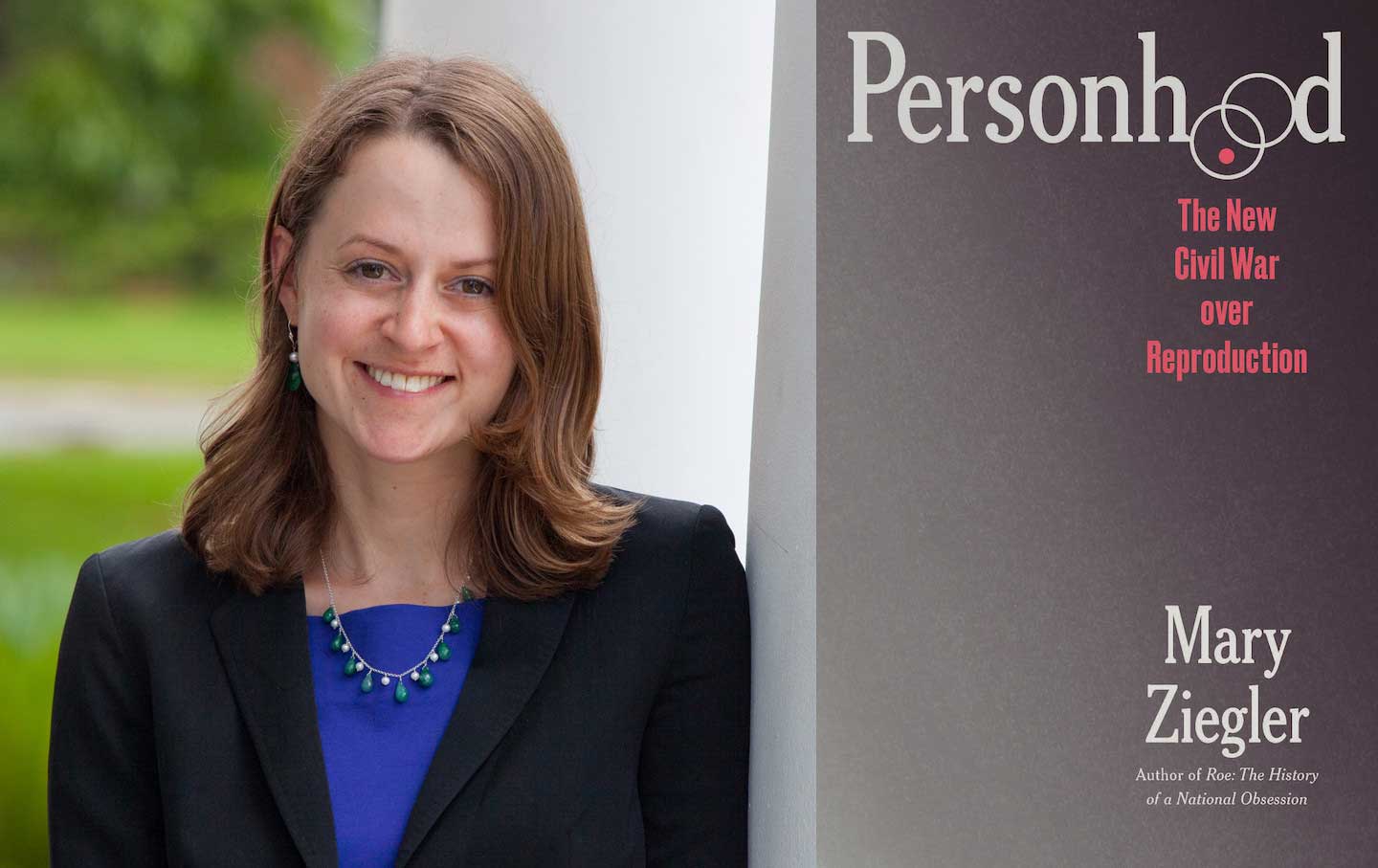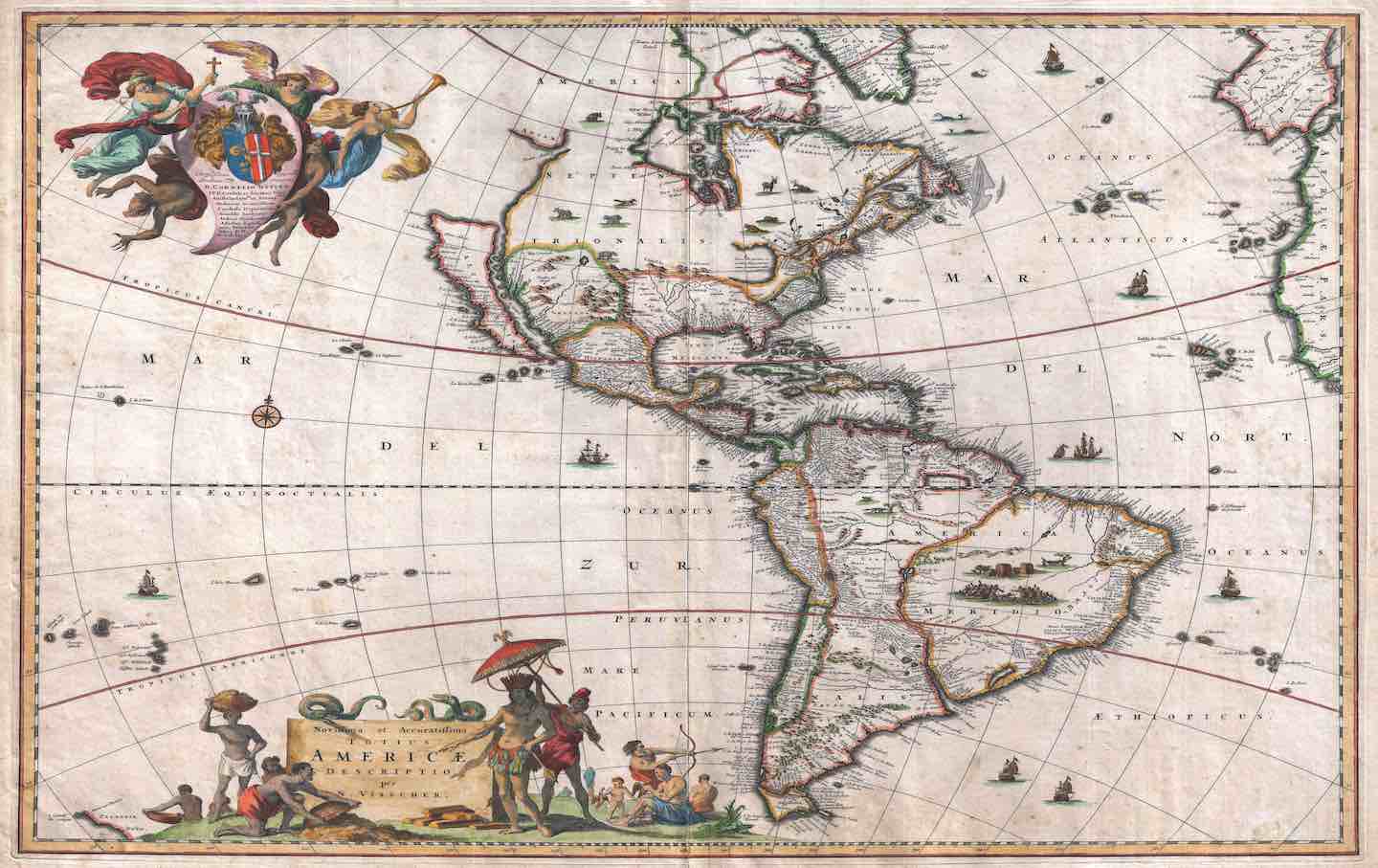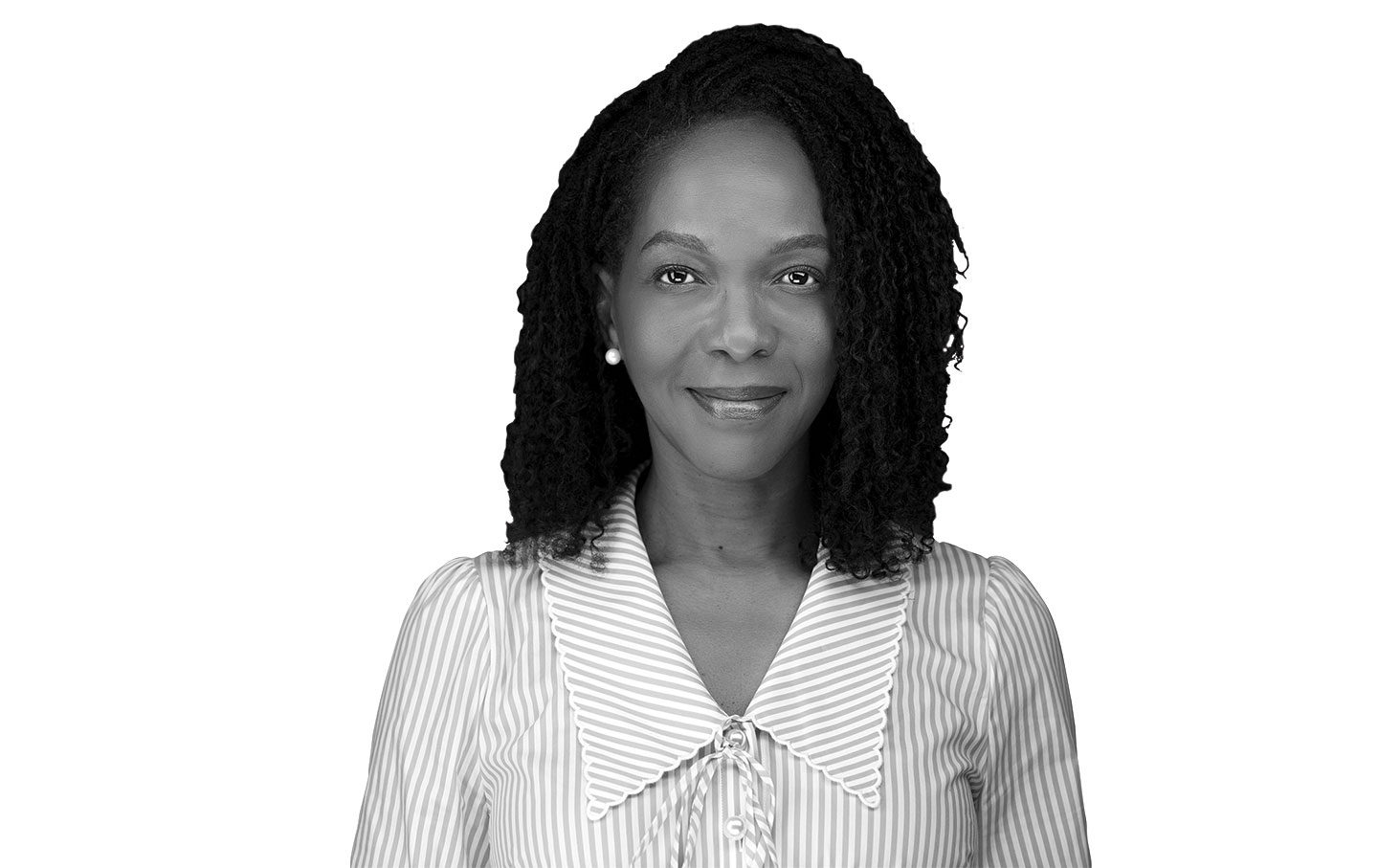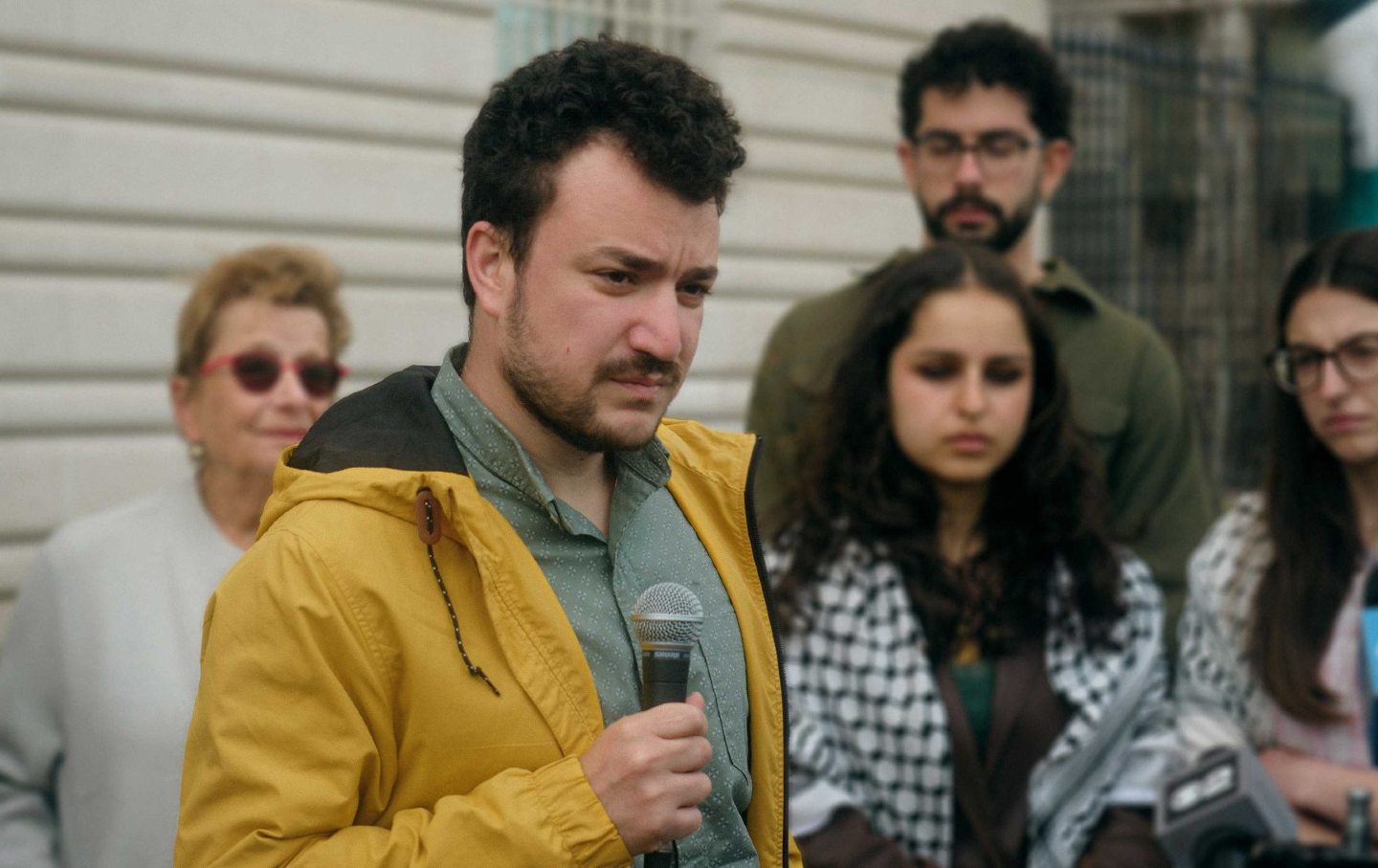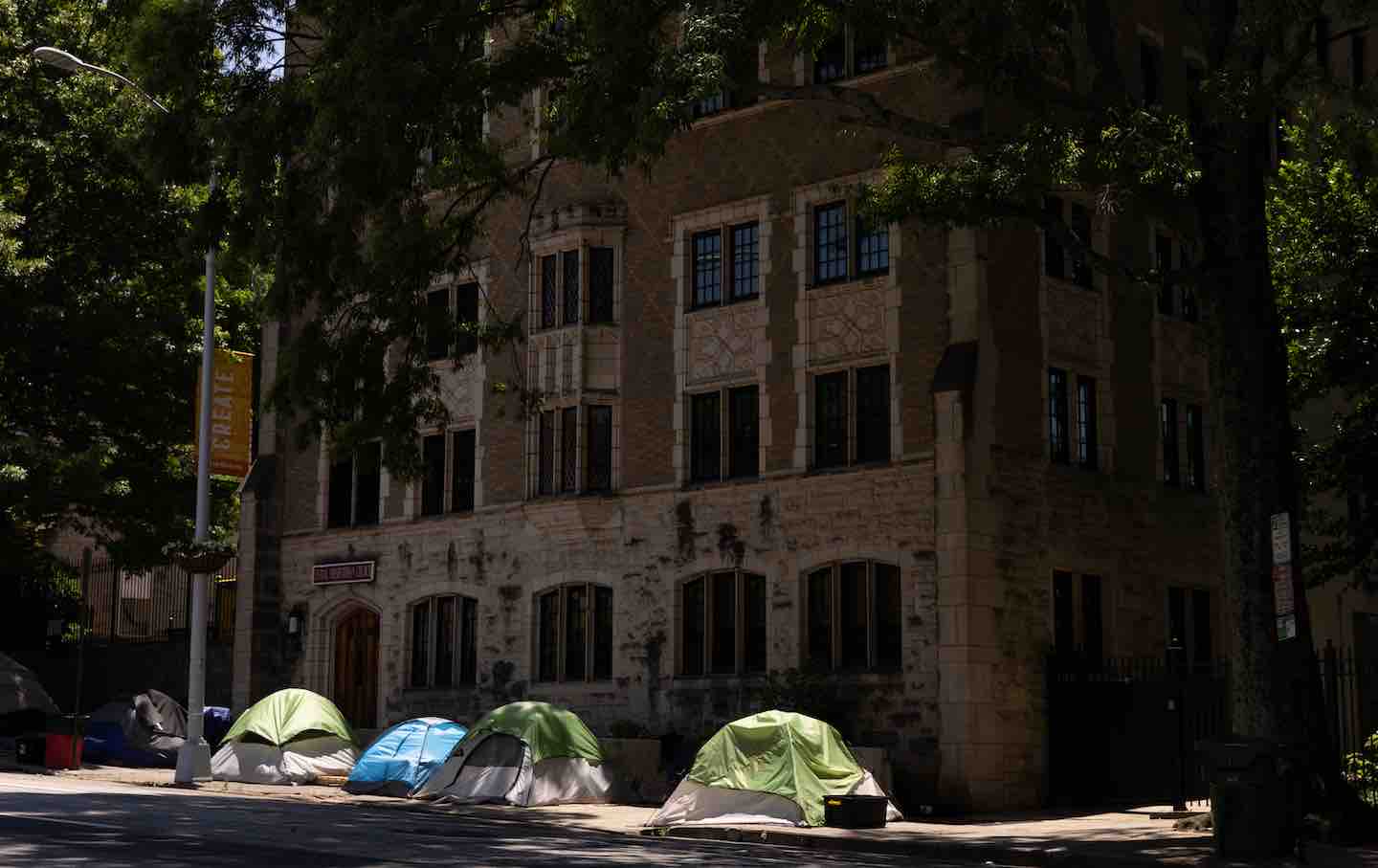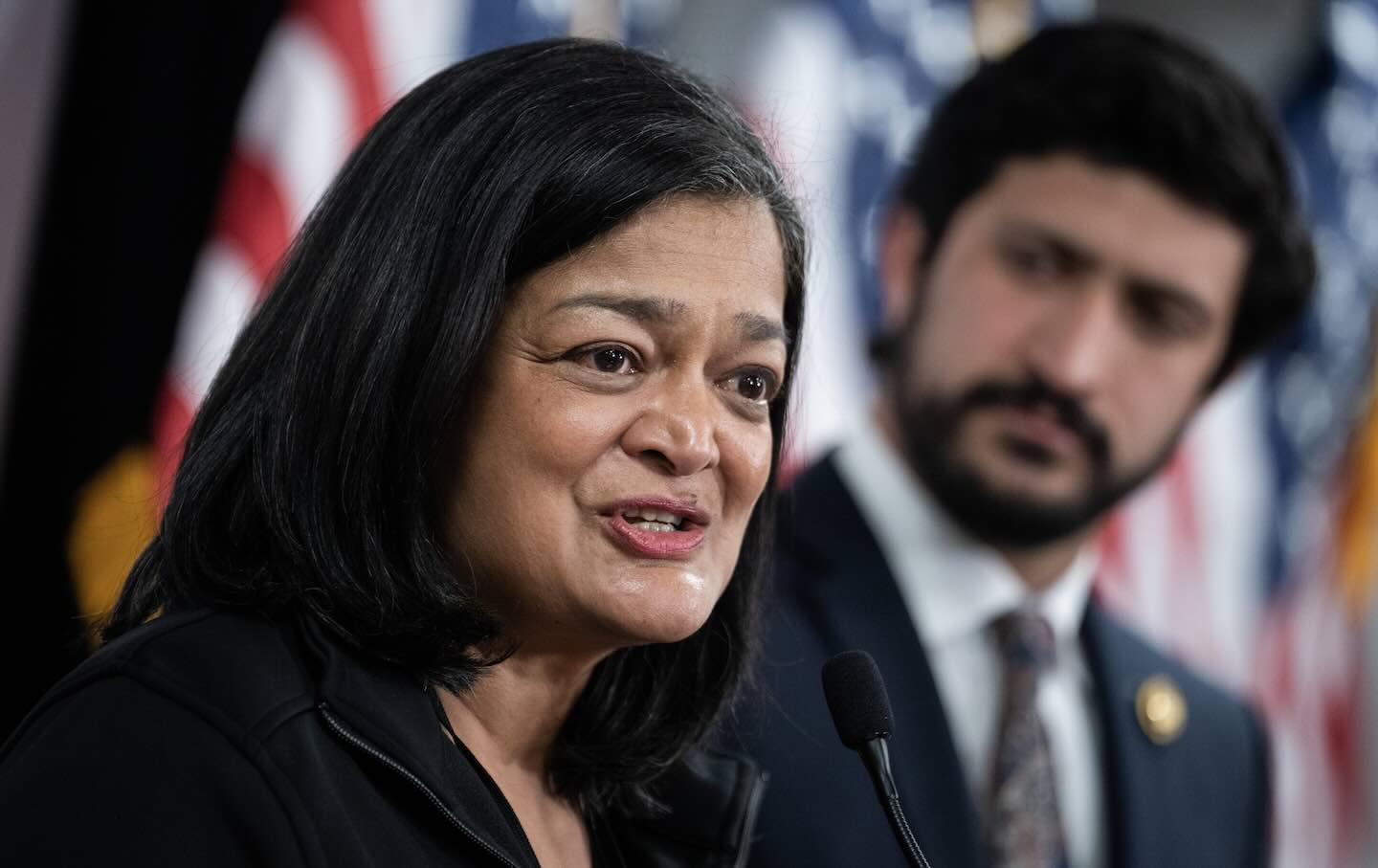The Convention on the Prevention and Punishment of the Crime of Genocide (the Genocide Convention) recognized all humans as born free and equal in dignity and rights, and obligated all nations to prevent and punish atrocities like the Holocaust, which until then had no adequate description or legal definition.
This was a towering achievement, especially for nations that had just slaughtered millions of each others’ people in a century of colonial land grabs, two world wars, and a lingering experiment with fascism. It is easy to look back at that pinnacle of postwar consensus, conscience, and humanitarian commitment and see a painful slide to today, to a period that Craig Mokhiber has described as one of great anguish for the world. Resigning his post at the United Nations this October, he wrote, “Once again, a genocide is unfolding before our eyes, and the organization that we serve appears powerless to stop it. We failed in our duty to meet the imperatives of prevention of mass atrocities, of protection of the vulnerable, and of accountability for perpetrators.”
Mokhiber has investigated human rights in Palestine since the 1980s and lived in Gaza as a UN human rights adviser in the 1990s. He also worked through genocides against Tutsis in Rwanda, Muslims in Bosnia, Yazidis in Iraq, and Rohingya in Myanmar. He was the director in the New York Office of the High Commissioner for Human Rights, where he from 1992 until his resignation on October 28, 2023.
—Laura Flanders
Laura Flanders: There’s been all sorts of stories about what happened with respect to you and the United Nations. Can you clarify what really happened?
Craig Mokhiber: These rumors that I was fired are false. The UN asked me to stay, and I said that I could not remain. In the month of February, there were a series of atrocities on the West Bank, including the pogrom that was carried out in the village of Huwara. I was speaking very publicly, by the way, as I have on human rights violations committed in dozens of countries all around the world and every continent for 32 years at the United Nations. But in this particular case, there was pressure that was brought to bear on the UN in March from Western governments, from Israel lobby groups and others to try to silence the UN. I was very disappointed to see some senior UN officials falling into that trap and allowing themselves to be silenced. And then worse, orders that came down for me to be silent at that moment in my public pronouncements, which was something I wasn’t ready to do. I indicated then that I would intend to be leaving the UN in the coming month. And of course after that, the situation on the ground in Palestine became much worse in October, as we saw this wholesale assault on the civilian population in Gaza. It’s that moment that I penned my letter setting out with great detail what I thought was wrong with our approach to the situation in the Middle East, more generally, the trepidatious pronouncements of senior UN officials, and where I thought we needed to be going in order to actually address the realities of the situation on the ground.
LF: While this word genocide is being debated, would you have called the attack by Hamas genocidal? How do you define it?
CM: It’s clear that Hamas committed war crimes on October 7, including the targeting of civilians and taking hostages. Any Hamas operative or commander who is responsible for those needs to be held accountable. We need a full-blown investigation to make sure that they are. The crime of genocide is very specific. This is why I rang the alarm bells on Israel’s perpetrating genocide in Gaza, because I had said that in all of my decades as a human rights lawyer and working at the UN, I had never seen such a clear case. The Genocide Convention of the UN lays out with specificity the kinds of acts that qualify as genocide and the intent that needs to be there as well. The acts are things like mass killings. We have seen thousands upon thousands of civilians slaughtered in Gaza. They include inflicting harm on the civilian population, and we’ve seen plenty of that serious mental and physical harm carried out. But they also include this very specific act that refers to imposing conditions of life that are designed to bring out the destruction of a group in whole or in part. We had seen an explicit policy on the part of Israel over the course of decades with the closure and siege of the Gaza Strip, which is designed to deny the people of Gaza healthcare and housing and water and sanitation and adequate food and infrastructure and construction and freedom of movement, all of the things required for decent life, as a policy, denied to the people of Gaza. This is historically one of the clearest cases of that particular violation of the Genocide Convention. But most unique here is the degree to which evidence of genocidal intent, which is required for the crime of genocide, has been expressed publicly and on the record by senior Israeli officials in the political leadership and in the military.
LF: There have been those who look to the Hamas documents declaring its intent to eliminate the “Israeli entity,” as they call it. These were amended in 2017 to distinguish between Jewish people and the state. Do we see genocidal intent on both sides?
CM: One of the other elements that’s necessary for a finding of genocide is the capacity to carry it out. These individuals, as senior officials, have the capacity. The State of Israel has that capacity. They’ve constructed a powerful apparatus of repression, which has been firmly entrenched in all of Palestine and Israel. That includes military occupation and assault forces, abusive police contingents, ruthless intelligence agencies, but also physical things like walls and fences and barbed wire, advanced monitoring and surveillance technologies, drones, autonomous weapons as well as the arming of violent settlers and setting up a system of oppressive laws, apartheid in place. That means that Palestinians are entirely subjugated every day, all Palestinians forcibly contained and interned. They’re largely defensive. They’re subject to regular attacks, both by the Israeli military and by violent Israeli settlers. So in other words, the capacity, the means to carry out the crime are clearly in the hands of Israel. Since October, we’ve seen all of those means deployed against the civilian population of Gaza and the West Bank.
LF: I think we have, in the media, made what is happening between Israel and the Palestinians a problem of Arabs and Jews. We have seen a massive increase in both Islamophobia and antisemitism. I see in what happened in 1948 and what’s happened since is a complicity amongst many nations to allow an ongoing violation to fester, unresolved.
CM: Israel’s attempt and some media attempts to portray this as something between Arab and Jews is very much belied by the very principled and courageous stand that many Jewish sisters and brothers are taking across the United States, across Europe, even in Israel, to say that this is not in their name and to defend Palestinian human rights and to ask for an end of apartheid and end of this horror and of violence. It strips away the lie that somehow Israel is representing Jewish people when it commits these atrocities. Israel is responsible for its own crimes, and that responsibility does not extend to Jewish people around the world and certainly not to those who are standing up to say that this is not in their name.
LF: South Africa was an apartheid state for decades. It was able to change, even though the white minority believed they were upholding a precious tradition unique in the world, and they had nowhere else to go and that their identity was under threat. They were able to change. Not as much as many people would like, but they have changed. What would have to change inside Israel? You don’t have to do away with the state of Israel. What would have to change inside Israel to move to the kind of multiracial democracy that could have been born, perhaps, in 1948 if pushed in that direction?
CM: South Africa does provide the model. What turned things around was civil society, movements, churches who came together and continued to advocate for an end to apartheid and for a democratic secular state in South Africa. It’s the same thing here. There’s no need to do away with Israel. There is a need to do away with apartheid, and that starts really with accountability, and there are lots of peaceful ways to do that. One of the great tragedies is that the Palestinian people have been denied any redress. If they pick up arms, they’re terrorists even though they have a right under international law to pick up arms to resist their colonization and their foreign domination. If they use legal methods in courts and tribunals, they are attacked at every step as being unhelpful to the peace process. If they participate in boycott and divestment, they’re accused of being antisemitic. If they have a Gandhi-style march, like the Great March of Return inside the cage of Gaza, they’re cut down in their thousands by Israeli snipers. They need solidarity from the world. They are besieged, literally and figuratively. If, like in South African apartheid, we stand together and we make sure that Israel is isolated in the ways that it needs to be isolated and is held accountable in courts of law, and then through peaceful protest and so on, I think we can see a change over time that will be to the benefit of Israelis and Palestinians.
LF: As you say isolate Israel, I hear people clutching their heart that as Jews they’ve been isolated, they’ve been marginalized, they’re afraid. They feel Israel is all they’ve got.
CM: I think we need to stand in solidarity with Jews who are fighting against this system. I think that’s not where the line is drawn. Nobody’s asking for Israel to disappear. What we’re asking, as I said, is for apartheid to disappear. You can’t do that without holding accountable all perpetrators of war crimes, crimes against humanity regardless of who they are and in the name of all victims. We want to see justice for victims and accountability for perpetrators, but we want it to be done peacefully. What are the peaceful means? We have legal action, we have political action, we have mass mobilizations, we have divestments, we have boycotts. All of these things were tried in South Africa, not out of hatred for white people, right? But out of love for the oppressed Black and brown people in South Africa. Unless we are racist, we have to say that the same rights apply to Palestinians as applied to South Africans.
LF: You still believe in the tools of the UN Declaration, the Convention, and the mechanism of the United Nations, is that right?
CM: I do. I think we need a United Nations. I think we need international law. I think we need human rights treaties and humanitarian law treaties and international criminal law. My frustration is with the institutions. The International Criminal Court has been horrendous in its biased approach to international law, always ready to hold accountable weak states of the South and to indict Africans, but has been dragging its feet on indicting Israeli perpetrators for years now because of Western pressure and because of some of its own biases. That has to be fixed. Don’t get rid of the court. Fix the court. Make sure it’s actually a universal court that applies to all perpetrators and all victims. If you have an international rule of law, it means that friend and foe alike have to be bound by the rules of humanitarian law, human rights law, international criminal law, and so on. That’s not the world we’re living in now.
Hold the powerful to account by supporting The Nation
The chaos and cruelty of the Trump administration reaches new lows each week.
Trump’s catastrophic “Liberation Day” has wreaked havoc on the world economy and set up yet another constitutional crisis at home. Plainclothes officers continue to abduct university students off the streets. So-called “enemy aliens” are flown abroad to a mega prison against the orders of the courts. And Signalgate promises to be the first of many incompetence scandals that expose the brutal violence at the core of the American empire.
At a time when elite universities, powerful law firms, and influential media outlets are capitulating to Trump’s intimidation, The Nation is more determined than ever before to hold the powerful to account.
In just the last month, we’ve published reporting on how Trump outsources his mass deportation agenda to other countries, exposed the administration’s appeal to obscure laws to carry out its repressive agenda, and amplified the voices of brave student activists targeted by universities.
We also continue to tell the stories of those who fight back against Trump and Musk, whether on the streets in growing protest movements, in town halls across the country, or in critical state elections—like Wisconsin’s recent state Supreme Court race—that provide a model for resisting Trumpism and prove that Musk can’t buy our democracy.
This is the journalism that matters in 2025. But we can’t do this without you. As a reader-supported publication, we rely on the support of generous donors. Please, help make our essential independent journalism possible with a donation today.
In solidarity,
The Editors
The Nation

